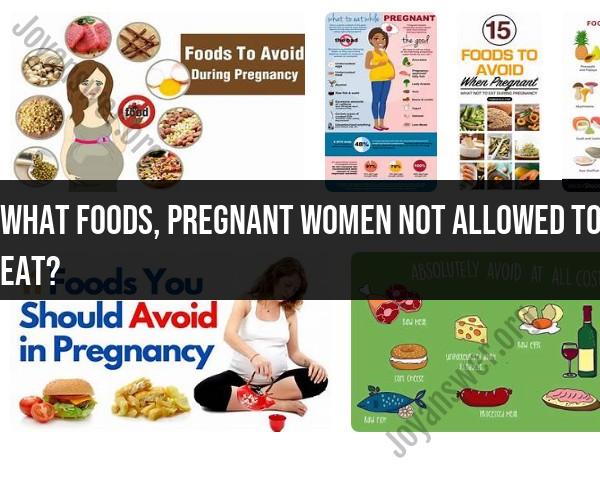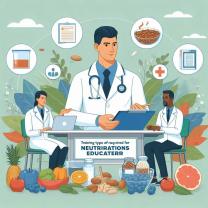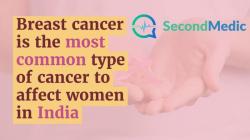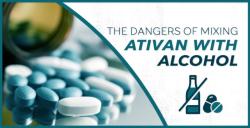What foods, pregnant women not allowed to eat?
During pregnancy, it's important for expectant mothers to be mindful of their diet to ensure the health and well-being of both the mother and the developing baby. There are certain foods that pregnant women are generally advised to avoid due to potential risks. Keep in mind that individual circumstances may vary, and it's crucial to consult with a healthcare provider for personalized advice. Here are some common foods to avoid during pregnancy:
Raw or Undercooked Seafood and Eggs:
- Raw or undercooked fish and shellfish may contain harmful bacteria, viruses, or parasites. Similarly, raw or undercooked eggs and foods containing raw eggs (like homemade Caesar dressing or mayonnaise) pose a risk of salmonella infection.
Soft Cheeses and Unpasteurized Dairy:
- Soft cheeses made from unpasteurized milk, such as feta, blue cheese, and queso fresco, may carry a risk of Listeria contamination, which can harm the developing fetus.
Unpasteurized Milk and Juice:
- Unpasteurized beverages can harbor harmful bacteria. It's safer to choose pasteurized milk, juice, and other dairy products.
Undercooked or Raw Meat:
- Undercooked or raw meat, including deli meats and hot dogs, may carry the risk of foodborne illnesses such as listeriosis or toxoplasmosis. It's recommended to heat deli meats until they are steaming to reduce the risk.
High-Mercury Fish:
- Certain types of fish, especially those high in mercury (shark, swordfish, king mackerel, tilefish), should be limited during pregnancy as mercury can harm the developing nervous system of the baby.
Caffeine:
- While moderate caffeine intake is generally considered safe during pregnancy, excessive caffeine consumption may be linked to an increased risk of miscarriage. It's advisable to limit caffeine intake.
Alcohol:
- Alcohol can have harmful effects on the developing fetus, leading to birth defects and developmental issues. It is recommended to avoid alcohol completely during pregnancy.
Raw Sprouts:
- Raw sprouts, such as alfalfa and clover sprouts, may harbor harmful bacteria. Cooking sprouts thoroughly can help reduce the risk.
Excessive Vitamins and Supplements:
- Taking excessive amounts of certain vitamins and supplements, such as vitamin A and certain herbal supplements, may pose risks to the developing baby. Consult with a healthcare provider before taking any supplements.
Unwashed Produce:
- Raw fruits and vegetables should be thoroughly washed to remove any potential contaminants.
Pregnant women should maintain a well-balanced diet, stay hydrated, and follow their healthcare provider's guidance for a healthy pregnancy. Individual dietary needs and restrictions may vary, so it's crucial to consult with a healthcare professional for personalized advice.
Foods that pregnant women should avoid or limit during pregnancy
A healthy pregnancy diet is crucial for both mom and baby, but there are certain foods that pregnant women should avoid or limit. Here's a quick guide:
Avoid:
- Raw or undercooked meat, poultry, and seafood: These can harbor harmful bacteria and parasites that can cause foodborne illness, which can be dangerous for both mom and baby. This includes sushi, ceviche, and sashimi.
Raw or undercooked meat, poultry, and seafood - Unpasteurized milk and dairy products: Unpasteurized milk can contain harmful bacteria like Listeria, which can cause listeriosis, a serious infection that can lead to miscarriage, stillbirth, or newborn infections. Stick to pasteurized milk and dairy products to be safe.
Unpasteurized milk and dairy products - Fish high in mercury: Mercury is a toxin that can harm a developing baby's nervous system. Fish high in mercury include king mackerel, marlin, swordfish, orange roughy, bigeye tuna, and shark. Opt for low-mercury fish like cod, salmon, shrimp, and pollock instead.
Fish high in mercury - Raw eggs: Raw eggs can contain salmonella, which can cause food poisoning. Avoid foods that contain raw eggs, such as cookie dough, cake batter, and eggnog.
Raw eggs - Organ meats: Organ meats, such as liver and kidney, are high in vitamin A, which can be harmful to a developing baby in high doses. Limit your intake of these meats during pregnancy.
Organ meats - Caffeine: While small amounts of caffeine are generally considered safe during pregnancy, it's best to limit your intake to less than 200 milligrams per day. This is equivalent to about one cup of coffee.
Caffeine - Alcohol: There is no safe amount of alcohol to consume during pregnancy. Alcohol can harm a developing baby's brain and growth.
Limit:
- Processed meats: Processed meats, such as hot dogs, deli meats, and sausages, can be high in sodium, nitrates, and nitrites, which can be harmful to your health. Limit your intake of these meats during pregnancy.
Processed meats - Unwashed fruits and vegetables: Fruits and vegetables can harbor harmful bacteria and parasites, so it's important to wash them thoroughly before eating.
Remember, this is just a general guide. It's always best to talk to your doctor about your specific dietary needs during pregnancy. They can help you create a safe and healthy eating plan for you and your baby.
Here are some additional tips for healthy eating during pregnancy:
- Eat plenty of fruits, vegetables, and whole grains.
- Choose lean protein sources, such as fish, poultry, and beans.
- Get enough calcium from dairy products or other sources.
- Drink plenty of water.
Following these tips can help you have a healthy and happy pregnancy!












